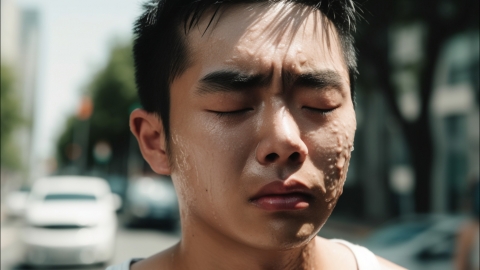Can drinking water be used for self-rescue after heatstroke occurs?
Generally, heat stroke is a severe condition caused by excessively high body temperature, which may lead to organ damage and even be life-threatening. Whether drinking water can be used for self-rescue after heat stroke occurs depends on the specific condition. If discomfort occurs, immediate medical attention is recommended. Detailed analysis is as follows:

If the condition is mild and the patient only experiences early symptoms such as dizziness, thirst, and fatigue, remains conscious, and is able to swallow independently, he/she should be immediately moved to a cool place and drink small amounts of lukewarm salted water or oral rehydration salts repeatedly to achieve a certain level of self-rescue by replenishing fluids and electrolytes, preventing worsening dehydration.
If the condition is severe, with symptoms including high fever, absence of sweating, confusion, vomiting, or even coma, drinking water at this stage cannot effectively help and may instead cause choking, suffocation, or worsen the condition due to impaired swallowing function. In such cases, drinking water should be avoided, priority should be given to physical cooling measures, and emergency medical services should be contacted immediately for professional rescue.
In facing heat stroke, regardless of the severity, the primary measure is to leave the high-temperature environment promptly. For mild cases, drinking water should be done in small amounts rather than consumed excessively at once, and ice water should be avoided to prevent gastrointestinal irritation. For severe cases, forcefully giving water orally is strictly prohibited. Instead, the patient's clothing can be loosened and the body surface wiped with cool water to reduce temperature, while ensuring the airway remains unobstructed. At the same time, medical personnel must be contacted as soon as possible to avoid delaying optimal treatment.






